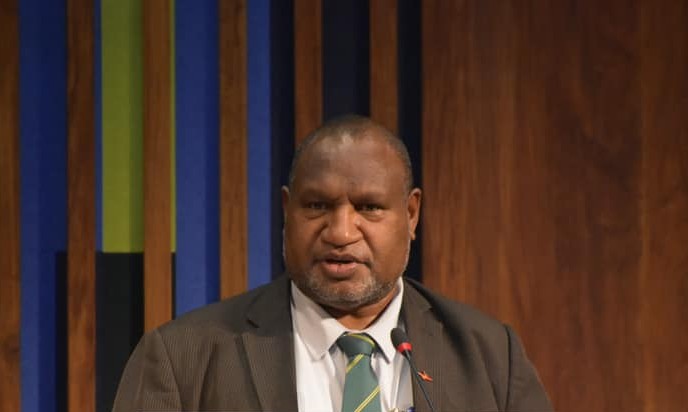Prime Minister James Marape has hailed the successful implementation of an off-grid solar project that is improving the lives of thousands of Papua New Guineans in rural areas.
The effort, a collaboration between the governments of Papua New Guinea and Australia, has begun to install 8,700 solar panels in houses, schools, and community buildings throughout 18 villages in Morobe’s Huon Gulf District.
The Prime Minister described the initiative as a game changer for rural development, bridging the gap between urban and remote populations by bringing reliable, sustainable energy to areas that previously lacked access to electricity.
“This off-grid solar project is providing light and hope in some of our most distant villages. For far too long, many of our rural communities have been kept in the dark, dependent on expensive and unreliable energy sources.
“This initiative is about changing lives, improving education, healthcare, and economic opportunities for our people.”
He emphasized the importance of the project in promoting Papua New Guinea’s commitment to sustainable development and lowering dependency on fossil fuels.
“This solar project is part of our broader strategy to promote renewable energy and reduce our carbon footprint.”
“We are blessed with abundant natural resources, and it is our duty to harness them responsibly to benefit all Papua New Guineans, especially those in rural areas.”
Off-grid solar arrays are projected to power homes, schools, clinics, and community centers, allowing youngsters to study after dark, boosting healthcare services, and helping small businesses grow.
“This is about bringing essential services to our people and ensuring that no one is left behind as we progress toward our 50th Independence Anniversary.”
PM Marape praised the partnership with Australia in completing the project and thanked the Australian government for its continuous assistance.
“This project is a testament to the strong bilateral relationship between Papua New Guinea and Australia.”
“We thank the Australian government for their continued partnership in advancing infrastructure development and improving the lives of our people.”
He noted that such collaborations are critical for achieving sustainable growth and enhancing the quality of life in rural communities.
He urged other development partners and local authorities to continue supporting renewable energy programs so that more communities can benefit from clean and reliable electricity.
“As we approach 50 years of independence, let us strive to leave no one behind.”
“Every child deserves the chance to study under bright lights, every family deserves access to electricity, and every community deserves the opportunity to grow and prosper.”
“This solar project is only the beginning. Together, we can illuminate PNG and pave the road for a brighter, more sustainable future.
The off-grid solar initiative in PNG is a partnership effort between the PNG and Australian governments aimed at providing reliable and sustainable electricity to distant villages.
A significant component of this initiative is the Pawarim Komuniti Partnership (PKP), which focuses on delivering off-grid solar energy solutions to areas beyond the reach of the national electricity grid.
Key Aspects of the Project:
Huon Gulf District Deployment: In the Huon Gulf District, Morobe Province, the project has commenced the installation of 8,700 solar home systems across 18 remote villages. This phase is expected to be completed over a seven-month period, significantly enhancing energy access for households and community facilities.
Previous Successes:
Prior phases of the project have seen the successful deployment of over 10,000 solar home systems in Oro and Western Provinces. To date, more than 25,000 solar home and community systems, along with hundreds of solar streetlights, have been installed across PNG, positively impacting numerous communities.
Funding and Support:
The project is supported by grants from the Pawarim Komuniti Off-grid Electrification Program, an initiative under the PNG–Australia Partnership. Funding is available for off-grid electrification projects valued at PGK500,000 or more, with partner contributions of at least 10% of the project value highly encouraged.

